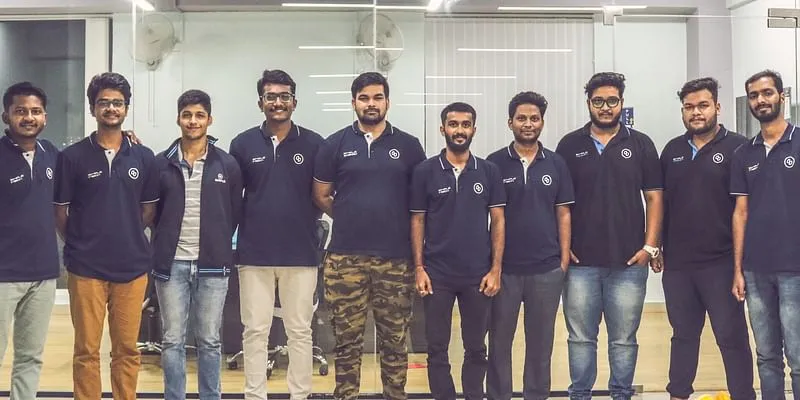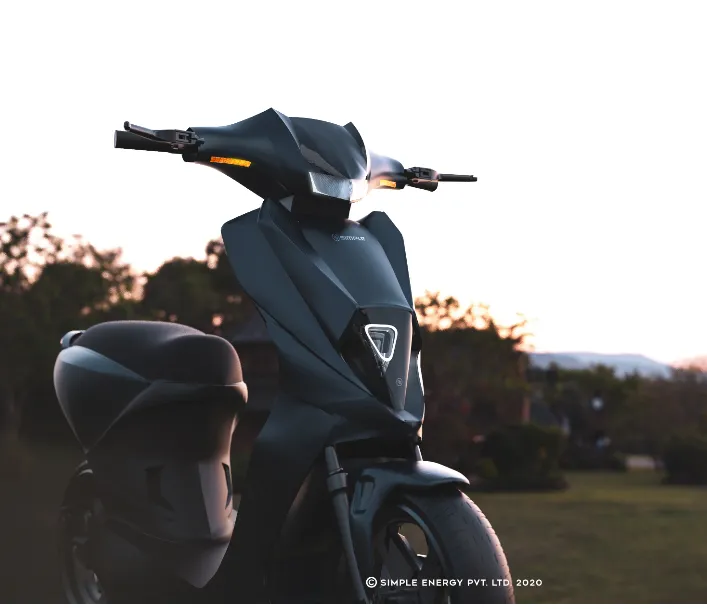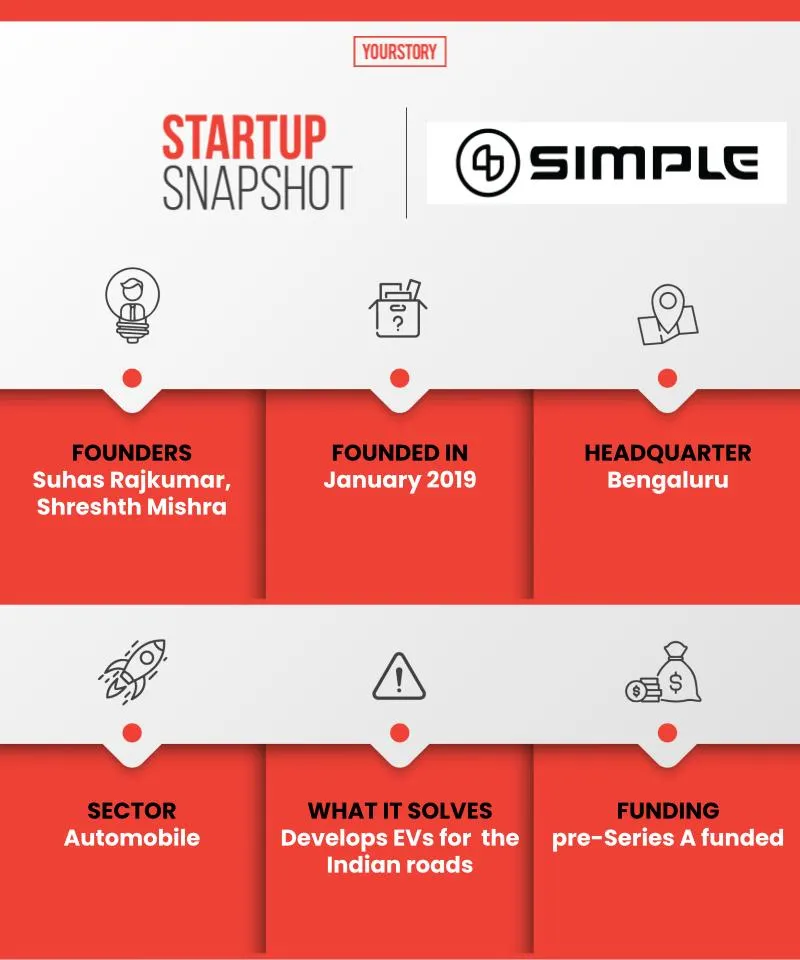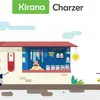Building from scratch, Bengaluru-based EV startup Simple Energy aims to disrupt the Indian two-wheeler segment
Bengaluru-based EV startup Simple Energy is building electric two-wheelers from scratch. Its flagship product, the electric scooter Mark 2, is planned to be launched in May 2021.
The future of the automotive sector is pinned on electric vehicles. NITI Aayog has proposed that India should completely switch to EVs by 2030. The Delhi government has also recently launched 'Switch Delhi' campaign to boost the adoption of electric vehicles in the city to combat the rising air pollution, and in step with its EV policy that it announced last year.
Also, the average Indians often buy two-wheelers as the vehicles are both price efficient and provide better mileage. However, when it comes to two-wheeler electric vehicles, price-sensitive Indian consumers often show reluctance. The cost of popular E2Ws available in the Indian market can be about 60 percent higher than that of ICE 2-wheelers (internal combustion engine) with similar features.
Also, the market presents a lot of challenges, which act as deterrents for E2W adoption among buyers. Some of them include battery replacement cost, limited range, charging time, and poor charging infrastructure.
To address these challenges, , started by Suhas Rajkumar and Shreshth Mishra in 2019, has come up with an electric two-wheeler – Mark 2 – which solves for three prime concerns, i.e., range anxiety, charging time, and affordability.
The Bengaluru-based startup builds electric two-wheelers from scratch. Right from its surface design, chassis design, and battery development, to motor development, the company puts together comprehensive in-house, Made-in-India products.
The company’s prototype – Mark 1 – recently achieved an ARAI (Automotive Research Association of India) approval for having a range of more than 230km, with a 4-kilowatt hour battery pack that has been developed in-house by Simple Energy.
Its flagship electric scooter Mark 2 is scheduled to be launched in May 2021. The e-scooter is expected to have a range of 240+ km, and includes features like a seven-inch smart touch dashboard with 24x7 4G-enabled internet connection, and a charging time of 40 minutes at home, etc.
The backstory
Back in 2018, Suhas Rajkumar, the CEO and Founder of Simple Energy, was looking to buy a two-wheeler for his family. Even after doing thorough research, he was unable to find the right EV as there was nothing close to what he considered as a good value for money EV in the market.
“I was taken aback that even after thorough research, there wasn’t value for money EV in the Indian market; it got me thinking. I was an automobile enthusiast since when I was a child and always wanted to design an automobile which will create a benchmark and be recognised as an Indian brand. All these prompted me to start Simple Energy,” recalls Rajkumar.
To begin with, he started reading about battery technology and charging technology, and spent nine months researching about EVs. Post that, Suhas and Shreshth Mishra, who the former met through common friends, shared similar ideas, and the duo kickstarted their entrepreneurial journey in January 2019.
However, the journey hasn’t been without its set of challenges. The team has had a moment where the development was halted and the prototype didn’t perform as expected. They ran out of money, giving them just 15 days of survival time with the prototype failure.
“Those 15 days was really a hard time. As a startup, we had no backup. Shreshth and I had to pool in 70 percent of the funds needed to ensure the company was up and running. One of the early investors also came forward to help us with the rest 30 percent of the funds needed. Not to forget the team, that stood by us and believed in the vision of building something remarkable,” says Rajkumar
Founding team
Suhas and Shreshth, along with a team of five other like-minded people, formed the core team. As an entrepreneur, Suhas had earlier founded a few startups in the areas of clothing, footwear, and watches. Before Simple Energy, he was working on a robotics startup.
Shreshth Mishra is a civil engineering graduate from BBDNIIT, Lucknow. He was associated with subscription-based meal delivery and cloud kitchen startup - Tiffilo, before he invested in and joined Simple Energy.
The rest of the core team comes with experience in EV domain, mechanical engineering, electrical engineering, and electronics engineering.
Presently, the startup has a team of 29 members, including the co-founders.

Simple Energy team
Market size and revenue model
The electric vehicle market is estimated to be a Rs 50,000 crore ($7.09 billion) opportunity in India by 2025, according to a report by Avendus Capital.
“The Indian consumer wants the most economical option and that doesn’t just mean in terms of price; it extends to fuel economy as well,” says Suhas.
The expected price of the Mark 2 e-scooter will be between Rs 1,10,000 to Rs 1,20,000.

Electric Bike by SImple Energy
“We also have multi-dimensional revenue models as we develop a lot of components in-house, which gives us an edge over the technology. Thus, the company looks at its resources to develop new revenue streams for the organisation,” mentions Suhas.
Its revenue model is based on B2B and B2C, wherein both the markets can buy the products from the company.
It has tied up with software partners including CATIA, ALTAIR, and Ansys for software support. These are widely used and are considered pivotal to any product development. These companies have come forward to support startups via their startup programmes.
Funding and future plans
Initially, the company was bootstrapped with Rs 1.3 crore. Recently, Simple Energy has raised an undisclosed amount of pre-Series A funding from angel investors, including Vel Kanniappan, Thomas George, and four others.
The startup is further looking to raise $8-10 million in Series A funding in the second quarter of this year.
The company is also looking at penetrating Tier-II and III cities over the next two years after the launch, setting up the manufacturing unit, with an aim to build a great EV market, as well as work on the charging infrastructure before going global.
“We are looking to invest Rs 45 crore in our first manufacturing plant. The plant, which will initially have a capacity to produce 50,000 vehicles in the first year of the commissioning, will come up at near Hosur in Tamil Nadu,” mentions Rajkumar.
"The plant setup will begin from June-July 2021, post the launch. We are aiming to keep a minimum time gap between the launch and the delivery of the product," he adds.
The company plans to launch Mark 2 in three prime locations – Bengaluru, Chennai, and Delhi – to begin with, and then gradually expand to other cities such as Mumbai, Hyderabad, and Kolkata.

Image Credits: YS Design Team
The pre-launch bookings will commence from October-November 2021 onwards, he says, adding that in the first year of the launch, the company expects a sales volume of 10,000 units from the three cities together.
The startup would also set up its own fast-charging stations, called Matrix, at places like metro stations, petrol pumps, and cafes, and is scouting for partners for the same.
"We are looking at charging stations every 3-4 km, but the plan remains in the initial stages as our vehicles come with removable batteries. In partnership, we plan to install 20-25 supercharging facilities in Bengaluru, which will be universal for any type of EV," he says.
Simple Energy’s competitors include other smart electric scooter makers in the country like Ather Energy, Ultraviolette, Okinawa Scooters, Ampere Vehicles, Emflux Motors, Tork Motors, and Hero MotoCorp.
Edited by Kanishk Singh



![[Funding alert] Electric vehicle startup Simple Energy in talks to raise $1M](https://images.yourstory.com/cs/2/11718bd02d6d11e9aa979329348d4c3e/Imagehrn6-1595836341886.jpg?fm=png&auto=format&h=100&w=100&crop=entropy&fit=crop)





